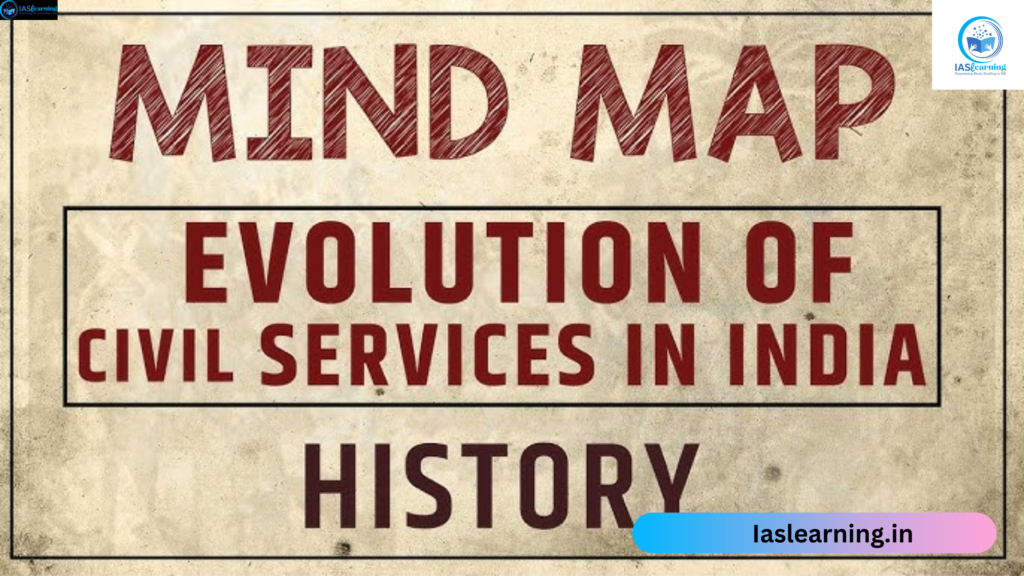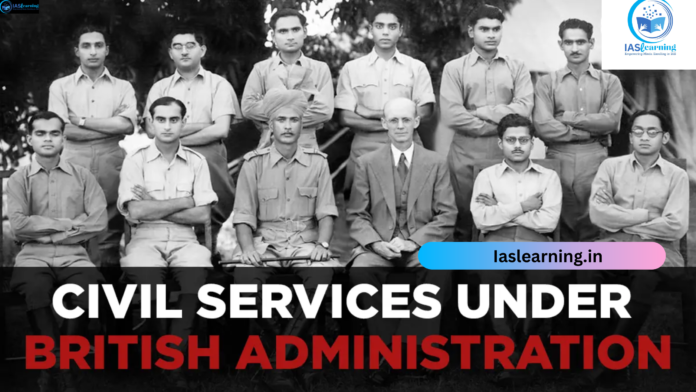Evolution of Civil Services During British Times
The East India Company established the Civil Service system in India to support its economic interests, but it later evolved into a well-organized machinery to handle the administrative needs of the areas it had acquired. In actuality, the phrase “civil services” was first used to differentiate between firm employees working on commercial projects and those employed by the armed forces and navy. Civil personnel were gradually given additional powers and duties.
For more : Ahmedabad Mill Strike: First Hunger Strike,1918
Evolution of Civil Services During British Times: Under Cornwallis (1786-93)
- He was the one who established and arranged the civil services.
- He separated the employees of the government into two groups: covenanted and non-covenanted.
- Higher officials were those who were covenanted, while lower-level clerks were those who were not.
- Because he insisted on seniority-based promotion, he is regarded as the father of the Indian civil service.
- In addition, he prohibited state employees from participating in private commerce or accepting payments from indigenous people in an attempt to reduce corruption among them.
Evolution of Civil Services During British Times: Under Wellesley (1798-1805)

For more : What is the concept of Nation and State?
What is Constitutionalism And Consitutional Morality
Fort William College (1800)
- Founded in 1800 as a result of Lord Wellesley’s demand. Often referred to as “Oxford of the East.”
- The Court of Directors objected to its creation.
- intended to train civil officers in oriental languages so they could administer without the need for Indian middlemen.
- The commercial nature of EIC was kept at a remove for young trainee public officers. The terms authors, factors, and merchants from the firms’ previous commercial history were eliminated.
- It was discouraged for native customs to be adopted.
- More money was provided to civil servants.
- Civil servants were not allowed to engage in private trade.
- Gambling was prohibited, as were intoxication and marriage, as well as open concubinage with Indian women.
Haileybury College (1806)
- In an effort to compete with Fort William College and prepare government officials for positions as respectable bureaucrats, the Court of Directors founded Haileybury College in Oxford.
- claimed that Cambridge clerics had thoroughly brainwashed young lads hired as East India Company civil workers before sending them to India and putting them under the sway of Orientalist academics at Fort William.
Charter Act of 1853
- The public examination system replaced the patronage-based civil service recruitment system with a competitive test. Indians were now able to take the civil services examinations.
- After Haileybury College, which had been established to train civil officials, was shut down in 1858, prospective civil servants were required to enroll at other universities and colleges.
Indian Civil Services Act, 1861
- This Act required government workers who were covenanted to hold specific posts, but the test was administered in English and in England. Under Lytton, the highest acceptable age was progressively lowered from 23 in 1859 to 22 in 1860 to 21 in 1866 and 19 in 1878.
- The higher administrative service known as the Covenanted Civil Services required hiring to take place in Britain. Provincial Civil Service was the term used for lower executive services.
- Note: The first Indian to be eligible for the Indian Civil Services was Satyendra Nath Tagore in 1863.
Statutory civil services
- Lytton established the statutory civil services in 1878–1879, with one-sixth of the covenanted posts to be filled by Indians from wealthy families, whose nominations must be approved by the viceroy and the secretary of state.
Montford Reforms 1919
- suggested that simultaneous exams be held in England and India.
- It is advised that one-third of hiring take place in India, with yearly increases of 1.5%.
For more : UPSC Final Result 2023: Out, Download here
Indian Renaissance Short Notes
Government of India Act of 1935
- outlined the procedures for creating, within their respective purviews, a Federal Public Service Commission and a Provincial Public Service Commission.


Helpful
Useful content